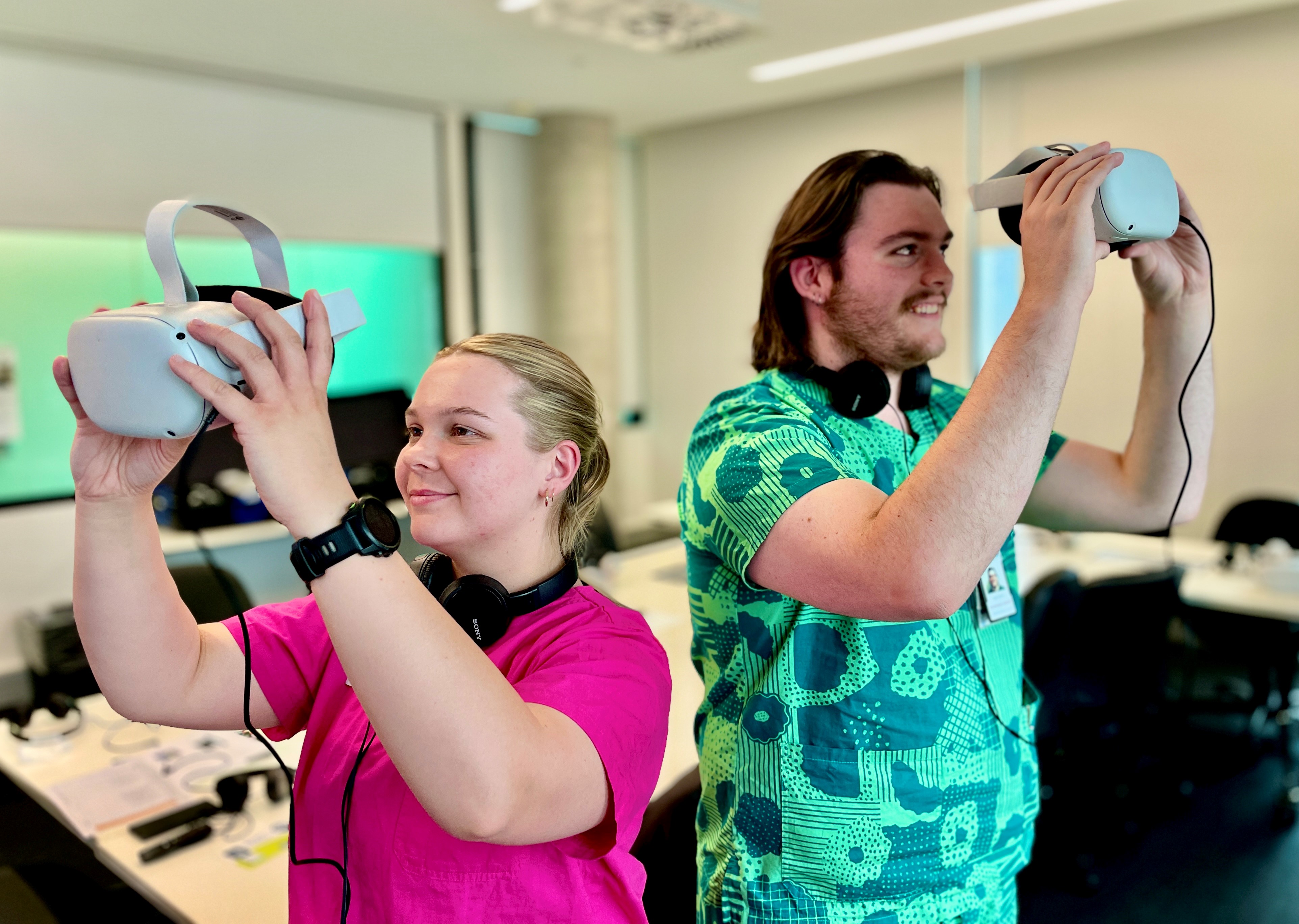To help our patients living with dementia feel safe and secure when they are in our care, Western Health has made changes to our Dementia Management Unit (DMU) at Sunshine Hospital.
These improvements will support our patient’s independence and wellbeing and allow them to navigate the unit with greater ease.
The number of patients we care for who are living with dementia is anticipated to rise, as our population ages.
Australian Institute of Health and Welfare (AIHW) estimates that almost 2 out of every 100 hospitalisations involve a patient with dementia.
Our 6-bed DMU cares for people with dementia and their loved ones.
Unfortunately, occupational violence is common in dementia care. The environmental layout can be an important factor in creating a safe and calm space.
Thanks to Dementia Australia, we made a series of changes to the unit to create a home-like, familiar and secure environment that is dementia-enabling.
The changes we’ve made include:
Dementia-friendly signage to help patients and caregivers navigate the space.
Repairing and repainting walls in a dementia-friendly colour scheme.
Large stickers on doors to give patients a visual cue to help them find their room. For example, one door is a green Federation-style door with stained glass panels.
Installation of switchable films on windows. These state-of-the-art window coverings safely replace curtains and provide residents with greater privacy.
New home-like furniture that meets dementia-friendly design principles.
We were also pleased to have virtual reality Dementia Australia training sessions for staff called Enabling EDIE, which helped them explore practical strategies for supporting patients and caregivers.
Deputy Chief Operating Officer Jason Plant attended one of the immersive sessions with clinical staff this year.
“It was a great opportunity to experience what it’s like to live with dementia through the eyes of a patient, like Edie,” Jason said.
“It makes you aware of all the disablers in an environment, like the pattern on the ground or the sounds around you, which can make it difficult for people living with dementia to do everyday activities, such as going to the bathroom or walking through rooms.
“I’m pleased to see that this training and audit has already had such a positive effect on our ability to support our patients living with dementia.”
In total, eight virtual reality sessions have been held, with various clinical staff attending, including occupational therapists Luke Hrbolic and Chantelle Bird. 
“This training has allowed me to develop my knowledge within the dementia space to better support our patients with person-centred care,” Luke said.
Chantelle Bird said she thought the training should be completed by all healthcare workers.
“It gave me a greater understanding of how sensory changes can impact a person, and this experience has made me want to explore and consider that even more in my future practice,” she said.
Divisional Director of Aged General Medicine and Subacute Services (AGMS) Kellie Vivekanantham said the DMU would continue to make positive changes.
“I’m proud of the work that our team has been doing to enhance our spaces and services and ensure that we can provide a safe, inclusive, and appropriate environment for people living with dementia and their families,” Kellie said.
